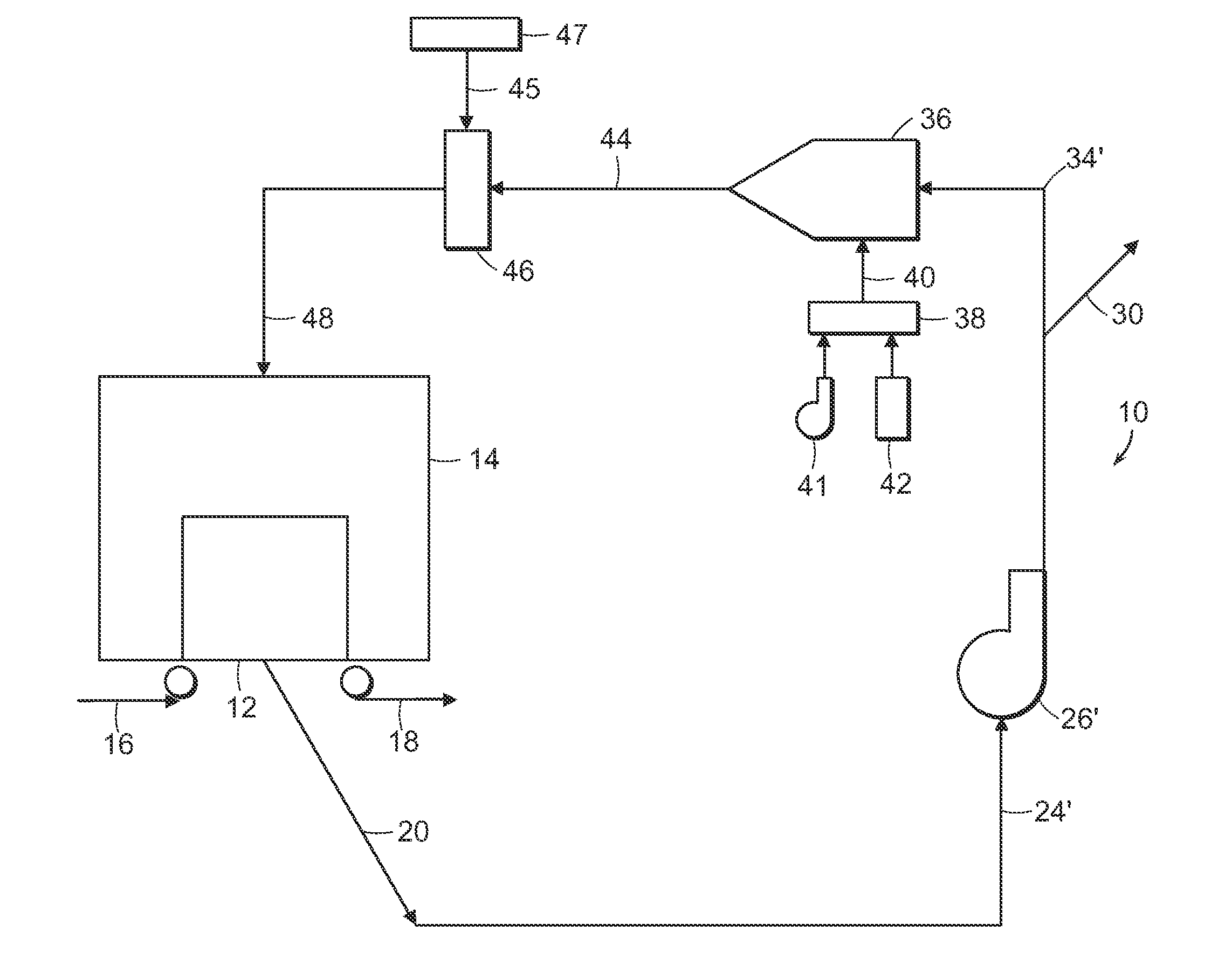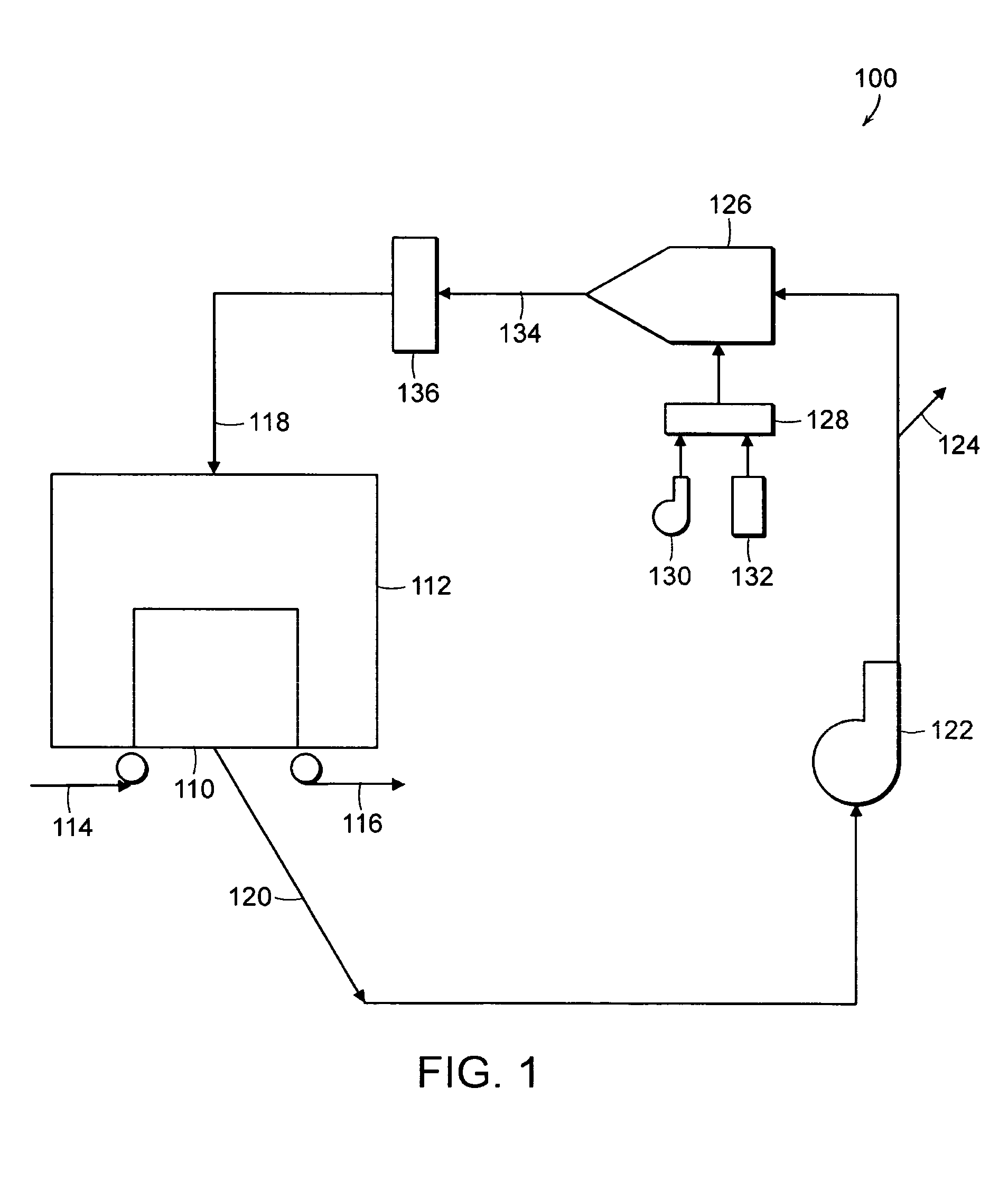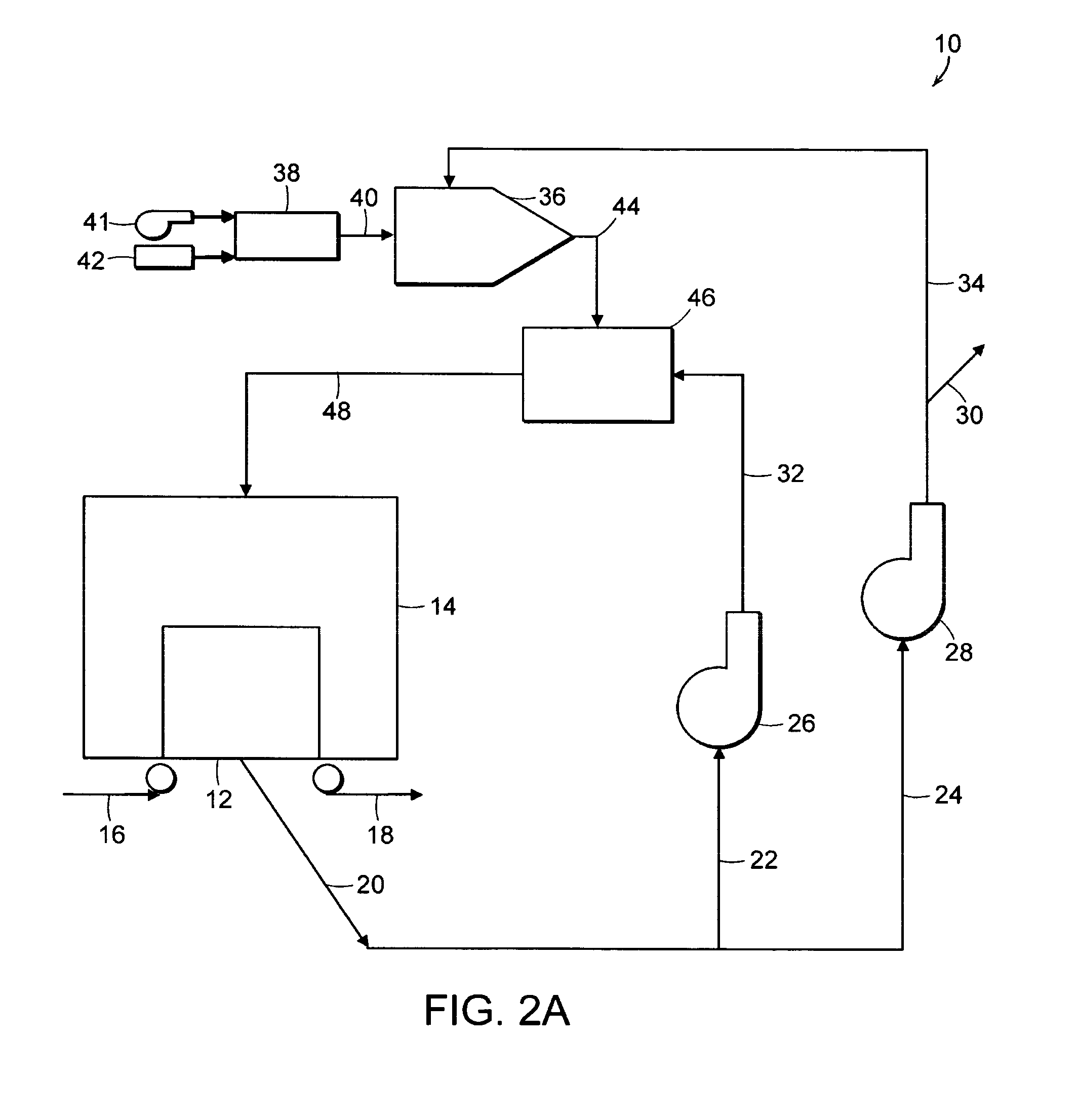System and method for mixing distinct air streams
a technology of distinct air streams and mixing methods, applied in the direction of drying machines with progressive movements, lighting and heating apparatus, furnaces, etc., can solve the problems of inability to uniformly profile the heated air in the system, the necessary mixing of the air with the combustion products is potentially hazardous to the end product, and the profile can irreversibly damage the finished product, etc., to achieve the effect of increasing the drying efficiency of the drying system, increasing the mixing and heating efficiency, and reducing the siz
- Summary
- Abstract
- Description
- Claims
- Application Information
AI Technical Summary
Benefits of technology
Problems solved by technology
Method used
Image
Examples
Embodiment Construction
[0032]The present invention includes both a system and method for mixing fluid streams, particularly those associated with contemporary drying systems. As described below, the present invention solves a number of problems noted in the textiles, paper and non-wovens industries. Most notably, the present invention includes a significant redesign of the drying system that efficiently utilizes system air and mixes it with combustion products in order to produce uniformly heated air for the web of goods. The mixing efficiencies of the present invention allow for a compact dryer design that is more economical in terms of raw materials, energy and space utilization.
[0033]Turning to FIG. 2A, the system 10 for drying a textile web is shown. As shown, the system 10 is represented schematically, thus it should be understood that the novel features of the present invention are equally applicable to all types of industrial mixers, including at least TAD's, floatation dryers and Yankee impingemen...
PUM
 Login to View More
Login to View More Abstract
Description
Claims
Application Information
 Login to View More
Login to View More - R&D
- Intellectual Property
- Life Sciences
- Materials
- Tech Scout
- Unparalleled Data Quality
- Higher Quality Content
- 60% Fewer Hallucinations
Browse by: Latest US Patents, China's latest patents, Technical Efficacy Thesaurus, Application Domain, Technology Topic, Popular Technical Reports.
© 2025 PatSnap. All rights reserved.Legal|Privacy policy|Modern Slavery Act Transparency Statement|Sitemap|About US| Contact US: help@patsnap.com



